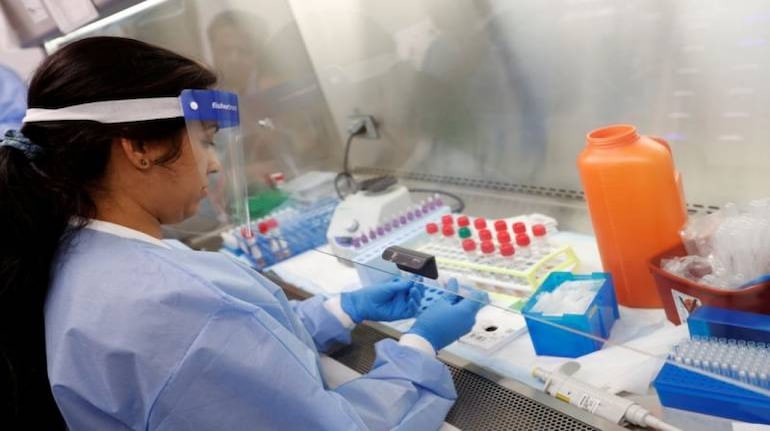



The total number of tests for detection of COVID-19 crossed the one crore-mark in India on July 6, an ICMR official said. A single-day jump of 24,248 COVID-19 cases took India's tally close to the 7-lakh mark on Monday, while the death toll due to the disease climbed to 19,693 with 425 new fatalities, according to the Union Health Ministry.
"A cumulative total of 1,00,04,101 samples have been tested till 11 am on Monday with 1,80,596 samples being tested on July 5," Scientist and media coordinator at the Indian Council of Medical Research (ICMR), Dr Lokesh Sharma said.
There are now 1,105 testing labs in the country comprising 788 in the public sector and 317 private labs. The per-day testing capacity is also fast-growing, Sharma said.
Coronavirus India News LIVE Updates
Around 2,00,000 samples have been tested on an average daily for the last 14 days, he said.
India had crossed the nine million-mark on July 1.
"The per day testing capacity which was around 1.5 lakh on May 25 is more than three lakh per day now," Sharma said.
Starting with one single laboratory at the National Institute of Virology (NIV) in Pune and then expanding to 100 laboratories in the beginning of the lockdown, the ICMR on June 23 validated the 1000th testing laboratory.
Various steps taken by the central government have paved the way for enhanced testing for COVID-19, the health ministry had said earlier.
The Centre has strongly advised states and UTs to take immediate steps to facilitate testing at the earliest by enabling all qualified medical practitioners, including private practitioners, to prescribe COVID test to any individual fulfilling the criteria for testing as per the ICMR guidelines.
Reiterating that 'Test-Track-Treat' is the key strategy for early detection and containment of the outbreak, the Centre last week advised them to take all possible steps to ensure full capacity utilisation of all COVID-19 testing laboratories.
States were also asked to facilitate testing in a big way by adoption of 'campaign mode' by organising testing camps, using mobile vans etc.
This shall effectively take COVID-19 tests to the people's doorsteps in high incidence areas to collect samples of all symptomatic individuals as well as their contacts, and get those samples tested by using rapid antigen tests, the ministry had said.
Follow our full coverage of the coronavirus pandemic here.
Discover the latest Business News, Sensex, and Nifty updates. Obtain Personal Finance insights, tax queries, and expert opinions on Moneycontrol or download the Moneycontrol App to stay updated!
Find the best of Al News in one place, specially curated for you every weekend.
Stay on top of the latest tech trends and biggest startup news.